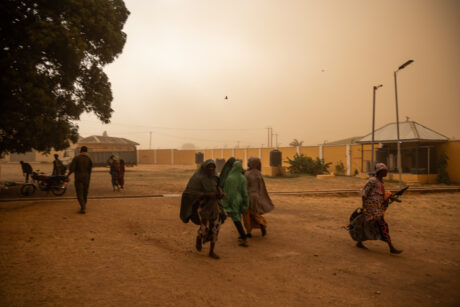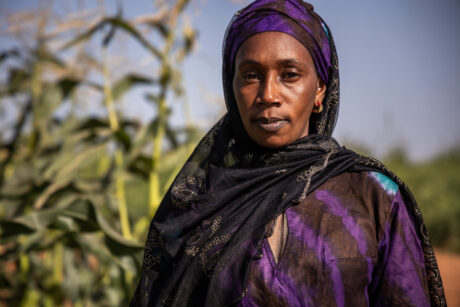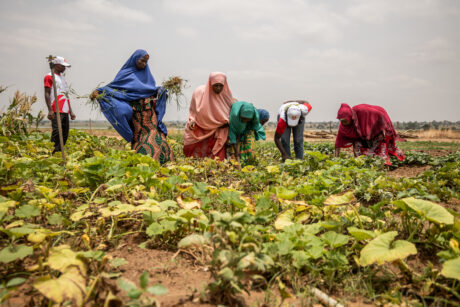USAID co-investment grant to Coliba SARL will help reduce plastic pollution, create jobs in AbidjanAbidjan, Côte d’IvoireReducing plastic pollution, recycling plastic waste for industrial use, and creating hundreds of jobs in Côte d’Ivoire are the goals of a USAID-funded grant from the West Africa Trade & Investment Hub (Trade Hub) to COLIBA Africa a company with a unique business model to help clean the environment.
Pollution from disposable plastic bottles, packaging, and utensils is a global problem, and West Africa is no exception. Côte d’Ivoire’s business hub of Abidjan, with more than five million people, produces 290 tons of plastic waste daily, most of which is not disposed of properly nor recycled. Côte d’Ivoire only recycles about three percent of the plastic it uses.
Coliba Africa, established in 2017, views this problem as an opportunity to create jobs for people living in disadvantaged communities while improving the environment. The company has developed a mobile app that connects households and small businesses with informal waste collectors. In exchange for plastic waste, households receive points that can be converted into payment for basic foods, while the collectors earn a wage.
“The Trade Hub’s co-investment grant will help us fulfill our commitment to providing jobs in Côte d’Ivoire, improving the environment, and raising awareness of the dangers of plastic pollution in West Africa,” said Genesis EHIMEGBE Co-founder & CEO of Coliba Africa.
The Trade Hub grant with a loan from the Alliance to End Plastic Waste, and other stakeholders will fund a project to train 6,000 informal waste collectors, set up modern waste collection and recycling facilities with a capacity of 14,000 tons per year. The Alliance also provided the technical expertise needed to help the project develop a holistic waste management ecosystem.
The Trade Hub co-investment grant will enable Coliba to integrate these informal waste collectors into its value chain, and it will be the first step that Côte d’Ivoire will take in training its collectors and help them build a better business.
COLIBA Africa is working with municipalities to install 65 waste collection centers (kiosks) where collectors can sell their plastic waste. In addition, Coliba has already installed +100 plastic waste collection boxes at gas stations, supermarkets, schools, and companies in Abidjan where residents can drop off their plastic waste to be recycled. The company plans to increase their kiosks to reach 500 boxes by 2025. The company expects to collect up to 2,383 tons of plastic waste per year on average during the 28-month project.
The project also includes the construction of a new recycling facility to be fully operational by December 2022. With a processing capacity of 14,000 tons of plastic waste per year, the plant’s machinery will convert the plastic waste into high-quality food-grade flakes in accordance with international standards for plastic recycling. The flakes will be exported to markets in the European Union. The project will create 250 direct full-time jobs; 70 percent of them to be occupied by women.
With Trade Hub’s support, Coliba will be able to pay staff salaries and training costs and explore more business development outside Abidjan.
“It’s gratifying to help fund a project that not only creates good jobs, especially for women, but also addresses a critical social need, in this case helping to eliminate toxic plastic waste from the environment and turning it into a marketable product,” said Robin Wheeler, Chief of Party for the Trade Hub. “It’s an ingenious solution to a growing global problem.”
Poised for growth, Coliba Africa is investing heavily in waste collection infrastructure, with plans to expand its operations to other West African countries like Senegal or Nigeria.
The Trade Hub partnership with Coliba Africa marks its second in the waste management sector. In September 2021, the Trade Hub awarded a grant of almost $1 million to Delta SA in Senegal to improve existing sanitation facilities and increase access to improved sanitation services in the country.



